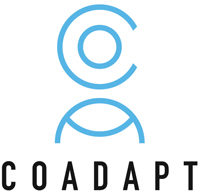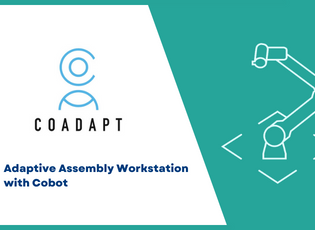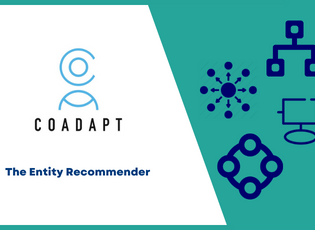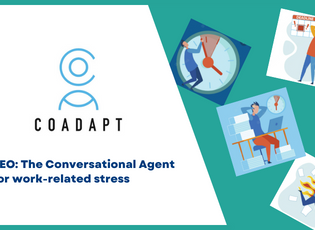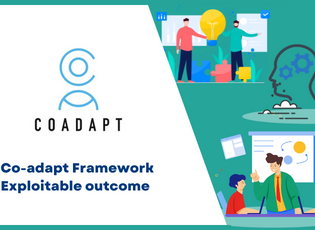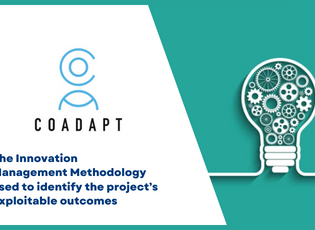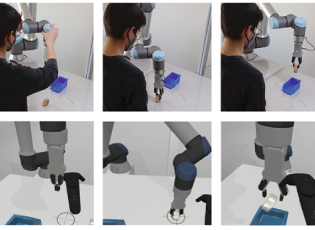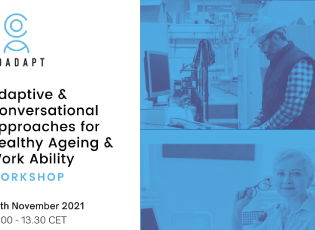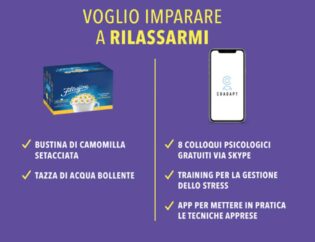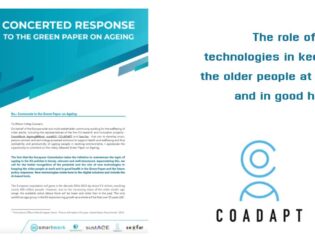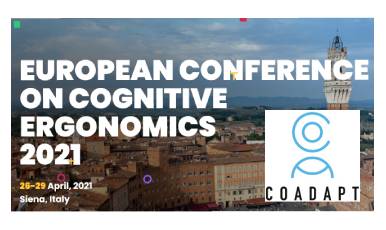
Co-Adapt UNIPD partner contributed to the discussion on cognitive ergonomics at the European Conference on Cognitive Ergonomics (ECCE) 2021 by presenting a study on the Adaptive Assembly Workstation (AAW) equipped with a collaborative (Cobot). During this 4-days virtual conference hosted by the University of Siena, the cognitive ergonomics and human-media interaction were extensively discussed, particularly the special theme of “Designing virtual and physical interactive systems”, like the Human-Robot Interaction.
The Co-Adapt workstation was presented to the conference’s attendees, as well as the promising results of our second use case. In the study, two samples of workers (adult and senior) who had experienced the workstation prototype in a realistic work task were interviewed to gain the very first subjective perception of the AAW.
The adaptive Co-Adapt workstation aims to support the operators in assembly lines, focusing on the specific needs related to age. Indeed, ageing workers may suffer from physical and cognitive disturbances impacting their workability, among others a decline of the vision system functionalities and the cognitive flexibility crucial for managing the mental work demands. But, on the other side, they possess invaluable expertise that the aids of the smart devices composing the workstation could support in a highly personalized way.
The participants who took part in the provided profound insights to improve the workstation design, those suggestions were mainly referred to lowering the effort required to interact with the cobot. Overall, they agreed that the AAW is useful and safe, such similar considerations came from all the users, either adult or senior operators. Moreover, the AAW that can personalize its height, its lighting system, and is equipped with a collaborative robot able to work side-by-side with the human in safety and easy to program, is seen as a profitable solution for assembly lines even from naïve testers.
The study outcomes underlined the high level of acceptance and usability of the AAW perceived by workers regardless of their age. These crucial aspects positively affect the potential introduction in the actual working environment of such tools to support workers when the mental demand related to the working activity becomes excessive and the operations are somehow risky or exhausting.
To gather more information about this study, find the article in the ACM digital library, ECCE 2021 proceeding
Check out our full list of Publications here
